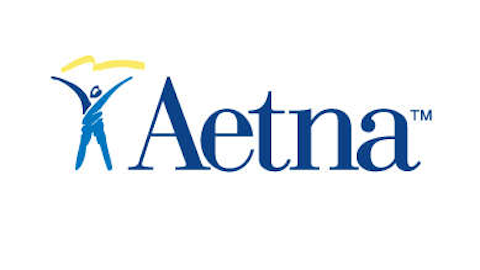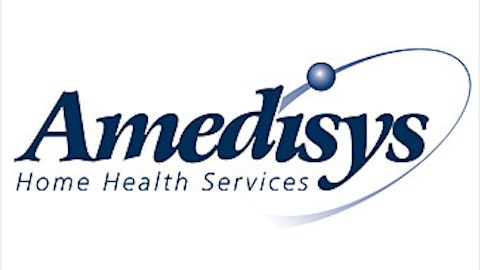There are a lot of questions about how the new healthcare laws will impact insurance companies. Obviously investors should not swear off healthcare stocks, but they should require a discount to embrace this risk. Unfortunately, the prices of many of these stocks are not compelling. I will examine Humana Inc (NYSE:HUM), Aetna Inc. (NYSE:AET) and UnitedHealth Group Inc. (NYSE:UNH) in the context of these new healthcare laws to see if they are worth the risk to investors.

Looking at the big picture, the main issue facing insurers today are the new healthcare laws and regulations. Humana Inc (NYSE:HUM) has declined the most in a quarter after disappointing preliminary Medicare Advantage reimbursement rates from the U.S. government. Humana is analyzing its strategic approaches to the new rate proposal after it expected an increase in revenue from Medicare membership in 2014.
According to the Centers for Medicare and Medicaid Services, the expected Medicare advantage rates would fall by over 2% in 2014. Jennifer Lynch, an analyst with BMO Capital Markets, said that a cut in rates would not be finalized until April 2013, which will provide some space to insurers to push for changes. This will impact Humana Inc (NYSE:HUM) in several ways. Humana said that it may observe a mid-single-digit fall after expecting a flat to slightly downward decline. The company said, “There is some language in the advanced notice that leaves the door open for improvements to the final rate. Many changes are scheduled to take place in 2014, and we believe it is in the best interest of the Centers for Medicare and Medicaid Services to limit program disruption in such a transformative year.” Commercial insurers sold medicare advantage program that includes and assists in the coordination of physician fees, hospitalizations and medical services. Humana Inc (NYSE:HUM) looks cheap based on valuations, with a price to earnings ratio of 8.97, price to book value of 1.2, and debt to equity ratio of 0.33. The company is in a good financial position to weather the healthcare law storm that is impacting its core business. It is cash flow positive and is funded mostly by equity, making it a fairly stable company.
Aetna Inc.’s product portfolio
It’s not all doom and gloom. Healthcare companies like Aetna Inc. (NYSE:AET) are being more proactive. Aetna Inc. (NYSE:AET) has recently launched Healthagen, a business unit brand based on the company’s strategy related to consumer empowerment and partnership. Healthagen is the collection of escalating businesses that solves the fundamental requirements of coordination in healthcare, transparency and enhancing value. It unifies the company’s health information technologies and population health management solutions across various businesses, including Medicity, iTriage and ActiveHealth Management. To meet the provider and consumer requirements, Healthagen is also engaged in the development of new businesses. The company’s solution, Accountable Care Solutions, is engaged in combining Healthagen capabilities to provide integrated population health management, advanced technologies and health plan services.
According to Joseph M. Zubretsky, Senior Executive Vice President of the Aetna Inc. (NYSE:AET), “Aetna is propelling meaningful change in health care. We have invested more than $1 billion to acquire and build a comprehensive collection of health management and health IT solutions to empower consumers and enable clinical integration and population health management.” For various providers, payers and employers who want to raise the standard of health care, business is no longer a viable option as a result of the increasing costs that they attempt to control. In order to reduce healthcare costs, increase consumer participation, and enhance care quality, the company has designed Healthagen’s integrated suite of payer-neutral solutions and technologies.
Charles Saunders, the Chief Executive Officer of Healthagen, said that it is combining the capabilities from Medicity, iTriage and ActiveHealth Management, and increasing its range of new businesses under the brand Healthagen. The combined solutions would allow providers to offer the maximum quality and value care, and offer more support to individuals so that they are more educated and occupied during their healthcare journey. Aetna Inc. (NYSE:AET) looks cheap with a price to earnings ratio of 10.24, and a price to book of 1.54. However, with total cash of $2.58 billion and total debt (not including long-term or other liabilities) of $2.88 billion, Healthagen must succeed, or Aetna Inc. (NYSE:AET) could take a big hit to its bottom line.
UnitedHealth Group Inc. fights back
UnitedHealth Group Inc. (NYSE:UNH) informed the Obama administration that lower payments for Medicare Advantage plans are based on the assumption that doctors’ would reduce their fees. Insurers are requesting that the Obama administration backtrack on a 2.2% reimbursement reduction for Medicare Advantage plans in 2014. They fear that lower reimbursements will not be met by an assumed 30% cut in physician fees. This 30% cut is widely viewed as a vestige of outdated legislation, and it is thought that it would be corrected before taking effect. This would leave 13.1 million people who enrolled in Medicare Advantage plans with today’s costs, but less reimbursement.
Complaints about a 2.2% drop in reimbursement may be overwhelmed by complaints about overpayment. According to government auditors, health insurers that offered private plans in the U.S. Medicare program for the elderly and disabled were overpaid by approximately $5.1 billion over the past three years. UnitedHealth Group Inc. (NYSE:UNH) has covered the care of about a quarter of Medicare’s 49 million beneficiaries who have signed for Medicare Advantage plans. While this bodes well for UnitedHealth Group in the short-term, it could create negative sentiment and leave a big void in the company’s balance sheet in the future if the government tries to recover the money that was overpaid. UnitedHealth Group Inc. (NYSE:UNH) also looks cheap with a price to earnings ratio of 10.15, a price to book ratio of 1.75, and a debt to equity ratio of 0.54. However, investors should be wary of the growing tension between the Government Accountability Office, an arm of Congress that conducts investigations, and healthcare insurers like UnitedHealth Group Inc. (NYSE:UNH).
Yes, many health insurance companies are cheap, but they are cheap primarily because the portfolios they create from premiums to pay out benefits are stymied in a low interest rate environment. These companies collect premiums but can’t earn much interest on them. What this means is that investors are not getting much of a discount for going into healthcare providers and health insurance providers. Of the stocks I discussed above, Humana Inc (NYSE:HUM) is the best pick in the healthcare insurance arena. It is cheaply priced based on valuation, and it is in the best position financially to deal with new healthcare laws.
The article Are These 3 Healthcare Insurers Worth The Risk? originally appeared on Fool.com and is written by Bill Edson
Copyright © 1995 – 2013 The Motley Fool, LLC. All rights reserved. The Motley Fool has a disclosure policy.




